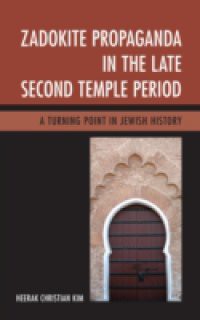Zadokite Propaganda in the Late Second Temple Period is a monumental epoch-breaking work of scholarship in ancient history and Jewish studies. This book examines centuries of scholarship on ancient Jewish group identity and official Jewish religion in the most tumultuous period of Jewish history, namely the beginnings of the Maccabean era. Popularly known as the time period that gave the Jewish world the most famous Jewish celebration period, Hanukkah, the Maccabean Revolt was far more than a rebellion against Syrian domination. The period represented an important turning point in Jewish history, as village priests without any significant heritage or repute successfully overthrew and expelled Zadokite priests from the Jerusalem Temple and the city of Jerusalem itself. The Zadokites had been the legitimate and dominant priests of the Jerusalem Temple since the days of King Solomon, who built the First Jerusalem Temple. The physical and political displacement of Zadokite priests from their places of power, authority, and wealth produced historically significant literate communities, such as the Qumran community, and an abundance of literature, such as commentaries, creative poetry, and apocalyptic works. These writings all lamented the Zadokite displacement and prophesied a New Age, when all would be restored to the way it should be. Thus, Zadokites engaged in propaganda warfare of epic proportions with all their erudition and political savvy, creating a model for effective propaganda warfare. The Zadokite propaganda was so effective that it set the tone for the language and theme of the New Testament.



















